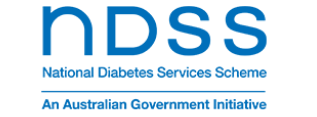Creating a safe and supportive school environment for students with type 1 diabetes
Supporting a student with type 1 diabetes while at school can make a lasting impact on a student’s emotional wellbeing, health and learning.
The Diabetes in Schools program provides guidance and information for principals about how they can further create a safe and supportive school environment to help a student with type 1 diabetes learn, develop and thrive. It also gives principals access to information and training for their staff.
Training for Schools
The Diabetes in Schools training program covers the basics of type 1 diabetes, insulin and glucose monitoring, what to do during lows and highs, physical activity and even how to prepare for a school camp.
All school staff should participate in the Diabetes in Schools introductory level training to get a basic understanding of type 1 diabetes. Designated staff should also complete additional levels of training to be able to support a student’s individual needs.

Role of a Principal
Students with type 1 diabetes should be given the same opportunity as any other student to fully participate at school, they just need a little extra support and forward planning. Schools have a legal obligation to ensure a student doesn’t experience discrimination because of their type 1 diabetes. Schools should take the necessary action to support a student to participate in all aspects of school life, in the same way as their peers. Principals are ultimately responsible for ensuring the school provides appropriate support to the student, and have an overarching responsibility to ensure students with type 1 diabetes can participate fully in their education. This involves ensuring school staff are appropriately supported and trained to help a student with their type 1 diabetes management.

It takes a team approach to support students to manage their type 1 diabetes at school.
It’s important that principals and school staff, parents and carers, and health professionals work together to ensure that students with type 1 diabetes are supported in the school environment.
While the needs of every student with type 1 diabetes differ, each member of the team plays an important role. Working collaboratively as a team will help ensure students with type 1 diabetes stay healthy and are able to enjoy all the experiences that school life has to offer.
A school principal plays a critical role. A principal is ultimately responsible for discharging the duty that all schools owe to students, including ensuring a supportive environment for students with type 1 diabetes that allows them to fully participate in their education.
A principal ensures a school complies with relevant laws and policy. They ensure that the school implements measures to support students with type 1 diabetes in the school setting, to ensure their safety as well as the safety of other students and staff. This includes understanding and complying with key legal duties and policies relevant to the student’s type 1 diabetes and health needs.
Schools and principals have a range of legal obligations which they must meet, including:
- the law concerning the administration of medicines in the school setting;
- the obligation to obtain appropriate consents to authorise staff providing support to students and for sharing information between key stakeholders;
- the duty to make “reasonable adjustments” under anti-discrimination law; and,
- the obligation to discharge the school’s legal duty of care.
There are four key principles that can guide school to ensure they meet their relevant legal and policy obligations, including:
- Understanding the law and creating a supportive environment
Principals have a central role in making sure the school is a supportive environment, where students are empowered to fully participate in their learning, and where staff feel confident they have the knowledge and training to keep all their students healthy and safe. - Implementing a student’s diabetes management plan (DMP)
Each student with type 1 diabetes will have an individual diabetes management plan. A principal is responsible for ensuring it is effectively implemented in the school setting, and that appropriate measures are in place to enable staff to support the student’s health and wellbeing needs, as set out in the student’s plan. - Ensuring that there is access to training and education
The school principal ensures that all school staff who play a role in supporting a student with type 1 diabetes are appropriately trained, so that staff are able to meet their duty of care to students. - Communication
Principals also have an important role in helping other members of the student’s school team, including parents and carers, school staff and health professionals, communicate with each other so that they understand each other’s roles and responsibilities, and to also ensure that any changes or adjustments to the child’s needs are communicated effectively to school staff.
There are different laws that need to be considered concerning the support of students with type 1 diabetes and the administration of insulin in the school setting.
Anti-Discrimination Laws – This area of the law outlines obligations for schools and education authorities to ensure that students do not experience discrimination because of their health condition. These laws require schools to make reasonable adjustments to accommodate children with type 1 diabetes. >>Read more
Understanding Reasonable Adjustments – ‘Reasonable adjustments’ is an important term for schools, parents and carers and health professionals to understand so they can all work together to make the school experience safe, positive and rewarding for students with type 1 diabetes. These ‘reasonable adjustments’ will be detailed in the student’s diabetes management plan and will be different for each student with type 1 diabetes. >>Read more
Medicines and Poisons Law – These laws explain who can administer medicines to others (in this case, insulin, glucagon etc.) and who is permitted to possess the medicine and how the medicine must be stored. >> Read more
Consent – These principles are relevant in understanding who can provide students with type 1 diabetes management support while they are at school and for ensuring that consent is obtained to allow for information to be shared with appropriate stakeholders such as the external diabetes treating team. >> Read More
Duty of Care
Schools owe a non-delegable duty of care to their students and the responsibility to discharge this ultimately rests with the school principal. School staff also owe a duty of care to students. Both of these duties require the implementation of measures to ensure a safe environment and to minimise avoidable risks of harm to students and staff. >> Read more
A student’s diabetes management plan is an essential document that will guide how schools can support students to learn and participate fully in their school experience. It is also a critically important aspect of ensuring the school complies with key legal obligations.
The diabetes management plan will usually be developed by the student’s diabetes treating team in collaboration with the student and family. The plan will outline the student’s monitoring, insulin and daily diabetes management needs while at school. The plan should provide schools with clear information about when a student requires supervision or support with key tasks, such as checking their blood glucose or taking their insulin at school.
Training available through the Diabetes in Schools Program assists school staff with understanding key aspects of the student’s diabetes management plan and how to implement it effectively in schools. >> Read more
To ensure that students with type 1 diabetes are safe in the school environment and can be supported to fully participate in educational and school activities, school staff should access training about type 1 diabetes management. >> Read more
Communication is very important when supporting a student with type 1 diabetes.
Open and consistent communication will help everyone gain a clear understanding of their roles and responsibilities in supporting the student with type 1 diabetes.
It is important that principals, school staff, parents or carers, are able to work together and come to an agreement about what needs to happen at school in terms of supporting a student with type 1 diabetes. This includes the process of implementing the student’s diabetes management plan, making reasonable adjustments, and keeping all parties updated when there are changes.
While everyone is often trying to do their best to work together, there will be times when differences arise with expectations, roles and responsibilities. In some cases, it may not always be possible to reach agreement.
Families can give consent for school staff to contact the student’s diabetes treating team. They may be able to offer additional clarification and solutions.
If there is a disagreement that cannot be resolved between families and schools, it may need to be escalated to more formal mediation processes.
Most state and territory Departments of Education, Catholic Education Commissions and Independent school associations have formal processes to escalate disagreements between parents and schools. Schools and parents are encouraged to use these existing education-based processes to try to come to agreement on what is needed to support the student.
The Diabetes in Schools website contains links to other useful resources developed by diabetes organisations, health services and education providers from across the country.
Further guidance for schools about supporting students with health conditions may be available from Departments of Education, Catholic Education Commissions, Diabetes Australia State and Territory organisations and Independent School Associations in your state and territory.
The Diabetes in Schools program provides three levels of training to independent, catholic and public schools.
All school staff should have a basic awareness of type 1 diabetes and how to recognise the signs of emergencies such as hypoglycemic episodes.
Additional training for designated staff who agree to provide additional support to students with type 1 diabetes on a day-to-day basis is available face-to-face or online.
Scenarios
Find out how principals can empower their school staff with training and support a student with type 1 diabetes and their family to manage their condition at school.
Related Resources
Principals can access resources to inform their processes when working with school staff who support a student with type 1 diabetes.







